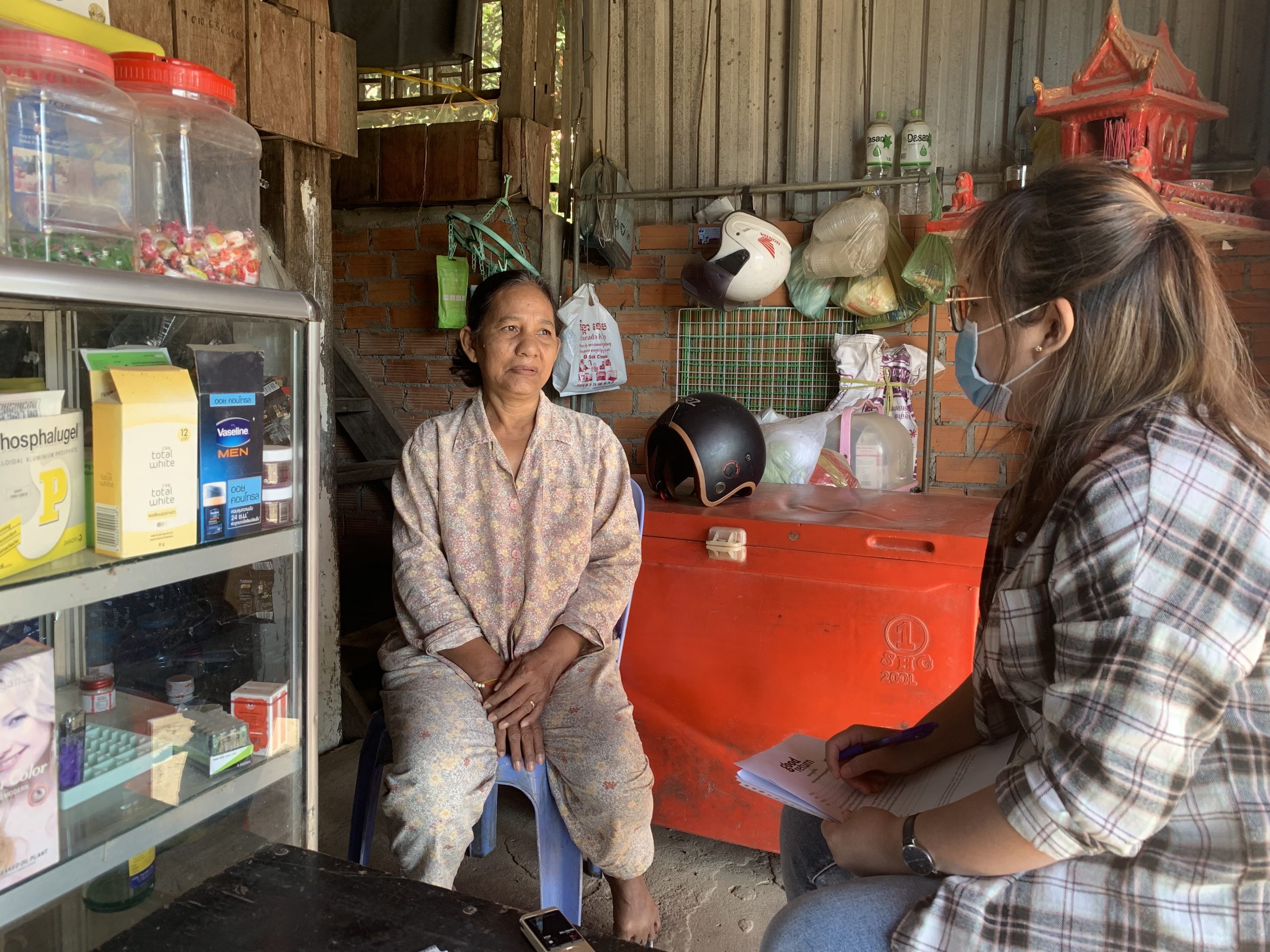Just last week I listened with interest as a group of young Cambodian women garment factory workers, living in an urban slum, explained how they were learning to use mobile phone banking to receive their wages and manage their money. For these women, mobile banking was more convenient and safer than being paid in cash. Step by step they are becoming empowered users of financial services: participating in the digital economy and the many opportunities it presents. I was struck by how rapidly things had evolved in Cambodia in recent years.
However, the story of financial inclusion in Cambodia, and in many other of Australia’s low-income neighbours, has not been without its challenges. In both Cambodia and the broader Asia-Pacific region, marginalised and vulnerable communities, particularly women and people with disabilities, continue to face barriers to accessing formal finance. Many of us working in financial inclusion were also deeply concerned to read the recent article in the Guardian that detailed how Cambodian families have suffered as a result of over-indebtedness, in some cases caused by irresponsible lending practices. The report covers cases brought to light by Cambodian human rights organisation Licadho, in which borrowers had taken on loans far beyond their means and were allegedly being threatened to make repayments. The article suggests that these threats have led to forced property sales and in some cases, tragically, loss of life due to suicide.

Market seller in Siem Reap. Image credit: Chetan Hireholi/Upsplash.
These allegations need to be taken very seriously and, indeed, the International Finance Corporation is currently investigating six microfinance firms in Cambodia. Their investigation has been urged by Licadho and Equitable Cambodia, who claim to have evidence of borrowers who have been victims of “predatory”, “deceptive” and “irresponsible” loans and collection tactics. The six microlenders receive direct or indirect IFC funding and comprise about 75% of Cambodia’s microfinance market.
As these investigations continue, the development and financial sectors, both within Cambodia and internationally, must respond openly and honestly, and remain focused on the rights and interests of their clients. Financial inclusion remains a key tool for enabling low-income communities to access sustainable and safe financial services, and has become particularly important in the post-COVID era – which has seen an increase in poverty rates in Cambodia and a troubled global economy. However, questions need to be answered, learnings shared and recommendations acted on.
In Cambodia, bringing all excluded groups into the economy must remain a priority to reduce inequality, grow economies and protect families into the future. I was pleased to see the commitment of a diverse range of sector actors tackling these issues, with the ultimate goal of sustainable and positive outcomes for their clients, at the recent Cambodian annual microfinance conference in Phnom Penh.
Political leadership is also crucial and the Cambodian government is one of many governments in the region with a robust financial inclusion strategy. Their National Financial Inclusion Strategy 2019‐2025 has a focus on working with the finance sector to drive economic activity and small business growth, and supports a range of activities to boost financial literacy and consumer awareness across the most vulnerable parts of the population. The recently released Financial Technology Development Policy 2023-2028 further builds inclusion by promoting digital innovation to achieve financial inclusion. Given the number of mobile broadband internet subscribers in Cambodia has surpassed the country’s 16 million population level, the new policy recognises the power of digital financial products in helping more entrepreneurs and families access financial services.
However, it is further critical that these reports and findings into microfinance within Cambodia also strengthen the sector’s broader mission of enhancing responsible financial inclusion for all internationally. Like any service, financial services can be delivered well. But they can also be delivered poorly. Responsible financial services should follow international standards regarding appropriate product design, prevention of overindebtedness, transparency, responsible pricing, fair and respectful treatment of clients, protection of client data, mechanisms for complaint resolution, and good governance and HR practices.
The international development and financial sectors must work together to create transformative products and services to meet the needs of vulnerable and marginalised clients in the Asia-Pacific region.
Using social inclusion principles driven by development experts, finance sector staff can be trained to gain a deep understanding of gender issues and the barriers facing people with lower incomes. Together, financial service providers and not-for-profits can develop financial capability training programs to build the confidence and knowledge of potential clients, including their rights and responsibilities as consumers, and dangers to look out for.
An example of this is the National Bank of Cambodia’s Let’s Talk Money campaign, delivered in partnership with Good Return. The campaign focuses on growing money skills, awareness and confidence, with targeted sessions for women garment factory workers, and uses a powerful video drama series about a young couple moving from the country to the city to build their future. After successfully reaching millions of Cambodians, the next phase of the campaign will use a comic book series for women that focuses on how to access and use safe, digital financial products.
Models of effective financial inclusion will continue to evolve, but the combination of access to finance and financial and business skills will continue to be a powerful means of achieving economic participation and improvements in living standards. The recent report on microfinance by 60 Decibels found that clients who access additional and complementary services to credit from their financial service provider have more substantial improvements in quality of life, business income, ability to manage finances, savings, and confidence compared to those who do not.
Ultimately, the recent Guardian article, reports and IFC investigation are timely and appropriately spotlighting the rights of vulnerable clients, highlighting irresponsible actions, and holding those responsible to account. The tragic reports of families affected by irresponsible actions should only strengthen the resolve of governments, development agencies and responsible financial institutions to deliver a model of financial inclusion with clients’ interests at the centre – clients such as the young women workers I recently had the privilege of learning from. Only when this is done, will the sector be able to design inclusive services that contribute to the financial health and well being of families and communities, and to the stability and prosperity of our region.
—————————–
 Shane Nichols, CEO Good Return
Shane Nichols, CEO Good Return
Shane’s experience in inclusive finance and enterprise development spans two decades, having worked with multiple financial service providers and social enterprises across Asia and the Pacific. Before joining Good Return, Shane worked for DFAT on economic development programs in China and Mongolia. Shane serves as a non-executive director of ACFID, our sector peak body.
Good Return is a social purpose organisation working across the Asia Pacific region to enable women and their families to access opportunity and build financial security. Their focus is enabling the provision of responsible finance to local entrepreneurs, as well as education and business training to women and other excluded groups to build confidence and financial capability.
*Feature image details: Meeting a microfinance client in Cambodia. Credit: Good Return 2023.
